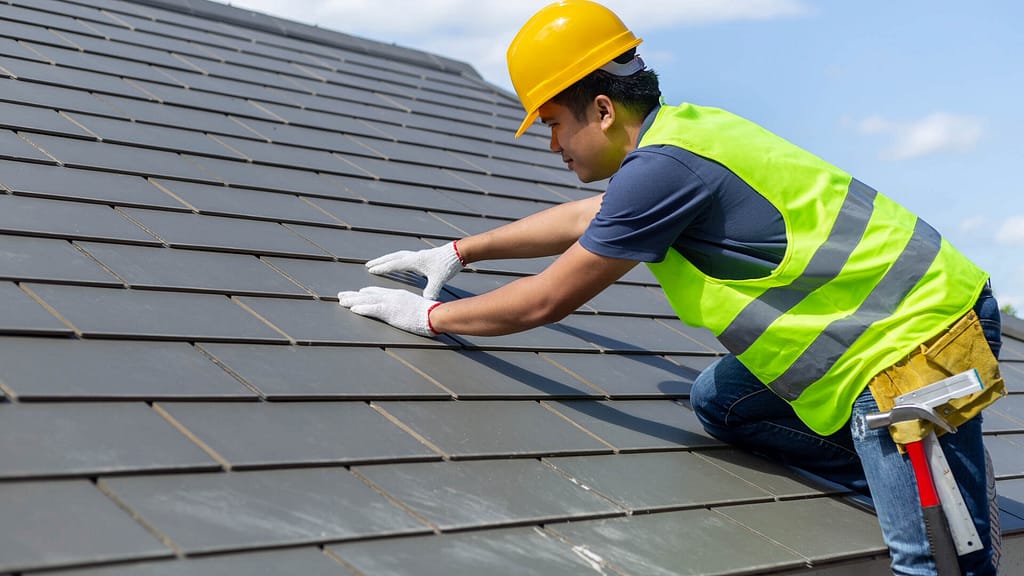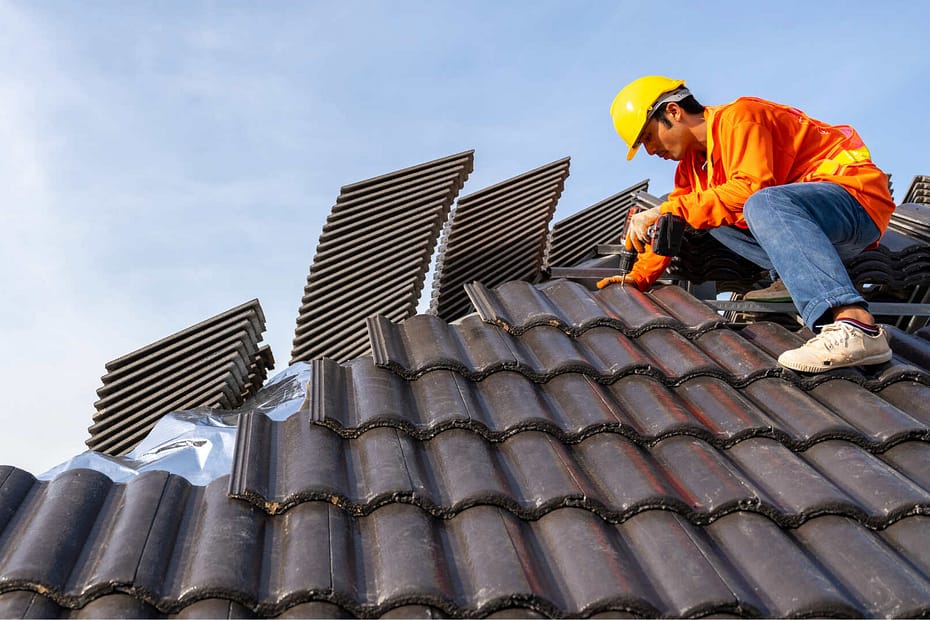How Much Does a Roofer Charge Per Square? Roofers typically charge between $100 to $400 per square, which covers 100 square feet. This guide breaks down what influences these costs and how to budget effectively for your roofing project.
Table of contents
What Does "Per Square" Mean in Roofing?
When you hear roofers talk about "per square," it might sound a bit confusing at first, but it's actually a straightforward concept. In roofing terms, a "square" refers to a measurement that covers 100 square feet of roof area. This standard unit helps roofers break down the size of a roofing job into manageable sections.
Roofers use the "per square" measurement to simplify the pricing and estimation process. Instead of calculating the cost for every individual square foot, they can provide estimates and quotes based on how many "squares" a roof encompasses. This method makes it easier to communicate and compare costs. For more details, check out our blog titled "What is a Square in Roofing?"
Average Costs per Square

The cost a roofer charges per square can vary quite a bit, influenced by several factors. Generally, you can expect to pay anywhere from $100 to $400 for each square of roofing. This range is broad because it depends on a few key elements:
- Geographic Location: Where you live can significantly affect the cost. Roofing prices in urban areas or regions with higher living costs might be at the higher end of the spectrum, while more rural areas might be less expensive.
- Type of Roofing Material: The material you choose for your roof also plays a crucial role in cost. Basic asphalt shingles are usually on the lower end of the cost scale, whereas materials like metal, tile, or slate may cost more.
- Complexity of the Job: Simple, straightforward roofing jobs cost less. However, if your roof has multiple levels, steep slopes, skylights, or other complex features, the price per square can increase due to the additional labor and expertise required.
- Roofing Company: Finally, the specific roofing company you choose will also influence the price. Different companies have different pricing structures based on their experience, quality of service, and warranty offerings.
Understanding these factors can help you anticipate the costs involved and budget accordingly for your roofing project.
Additional Costs to Consider
When planning for a new roof, it's important to consider all the potential costs involved, not just the cost a roofer charges per square. Here are some additional expenses you might need to prepare for.
Costs of Removing Old Roofing
Before installing a new roof, the old materials need to be taken off and properly disposed of, which can add to your total cost. The price for removal can vary depending on the type of roofing material and the amount of labor required to strip it off. This process can significantly increase your project's overall expense, especially if the existing roofing is heavy or complex to remove.
Costs for Permits and Inspections
Most roofing projects require some form of permitting from your local city or county government, which involves a fee. Additionally, once the roofing project is completed, it may need to be inspected to ensure it meets local building codes and standards. These inspections can also incur costs, and it's essential to factor these into your budget.
Potential Hidden Costs Like Structural Repairs or Upgrades
During the roofing process, hidden issues may be discovered that require immediate attention, such as structural repairs or necessary upgrades to support the new roof. For example, the roofing frame may need strengthening, or there might be water damage that must be repaired before proceeding. These unexpected expenses can add up quickly, so it's wise to set aside a contingency fund for such scenarios.
How to Get the Best Estimates from Roofers
Getting a good estimate for your roofing project is important to make sure you pay a fair price and get quality work. Here’s how to find reputable roofers and what to look for in an estimate.
Finding Reputable Roofing Contractors

To find a good roofer, start by asking friends or family if they know someone they can recommend. If that doesn't work, looking online for reviews can also be helpful. Websites like Instant Roofer collect reviews and information to help you find reliable roofers for your project. It’s also a good idea to choose a roofer who works near you. Local roofers know more about the weather and building rules in your area, and by hiring them, you help your local economy.
Understanding a Good Roofing Estimate
When you get estimates from roofers, here’s what to look out for:
- Get Several Quotes: Start by figuring out a rough cost for your roofing with a tool like an online cost calculator. Then, ask several roofers for detailed, written quotes. Compare these to avoid being overcharged.
- Look for Details: A good estimate will list everything you are paying for, like labor and materials. This helps you see exactly where your money goes.
- Check the Price Range: Getting quotes from different roofers shows you different prices, which helps you understand what a fair price should be.
- Timeline: Make sure the roofer tells you how long the project will take. Choose someone whose schedule fits with your needs.
Instant Roofer’s platform can streamline this process by connecting you with top-rated roofers in your area. Their AI-powered roofing calculator and extensive database of roofers allow you to quickly find and compare contractors, saving you time and effort in the selection process.
Conclusion
In conclusion, understanding the cost of what a roofer charges per square, in addition to the potential additional expenses that might arise, is essential for any homeowner embarking on a roofing project. Recognizing how factors such as geographic location, roofing material, and the complexity of the job influence the overall cost can help you budget effectively and avoid surprises. It's also crucial to account for the costs of removing old roofing, securing necessary permits, and addressing potential structural repairs, which can significantly impact your final expenses.
To ensure you get the best value for your money, take the time to find reputable roofing contractors and get detailed, written estimates. Comparing multiple quotes not only helps you understand the cost variations but also allows you to assess the transparency and reliability of different roofers. Remember, the cheapest option is not always the best choice; the aim is to balance cost with quality. By following these guidelines and utilizing resources like Instant Roofer, you can navigate the complexities of roofing costs and make informed decisions that lead to a successful and satisfying roofing project.
Fact checked by Adrian Catolico - 6/18/2024

